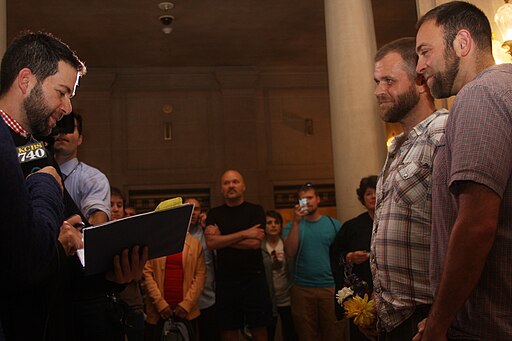The High Court of Australia has unanimously ruled that the federal Marriage Act 1961 overrides the recent passing of the Marriage Equality (Same Sex) Act 2013 in the ACT. Consequently the ACT law has been repealed. The marriages of 30 people who were married under the act no longer have legal standing.
In its judgement the High Court maintained that the federal government’s right to pass law on marriage is protected under the constitution. Section 51 of the Constitution grants power of marriage and divorce to the federal government (s51 xxi and s51 xxii). Since federal Act explicitly forbids the recognition of gay marriage, the state Act has no validity.
The Marriage Amendment Act of 2004 (an amendment of the federal Marriage Act), states that:
“Marriage means the union of a man and a woman to the exclusion of all others, voluntarily entered into for life. Certain unions are not marriages. A union solemnised in a foreign country between: (a) a man and another man; or (b) a woman and another woman; must not be recognised as a marriage in Australia
The High Court’s summary judgement states:
“The Court held that the object of the ACT Act is to provide for marriage equality for same sex couples and not for some form of legally recognised relationship which is relevantly different from the relationship of marriage which federal law provides for and recognises,”
“Accordingly, the ACT Act cannot operate concurrently with the federal Act.”
The finding puts the onus for marriage reform back onto the federal government. Gay marriage advocates will need to work harder to bring about a federal bill that overturns the common law definition of marriage on which the 2004 amendments were based.
ACT Chief Minister Katy Gallagher has no regrets about pursuing marriage equality in the state. She said the spotlight on Gay Marriage would “continued to push the debate forward”.

